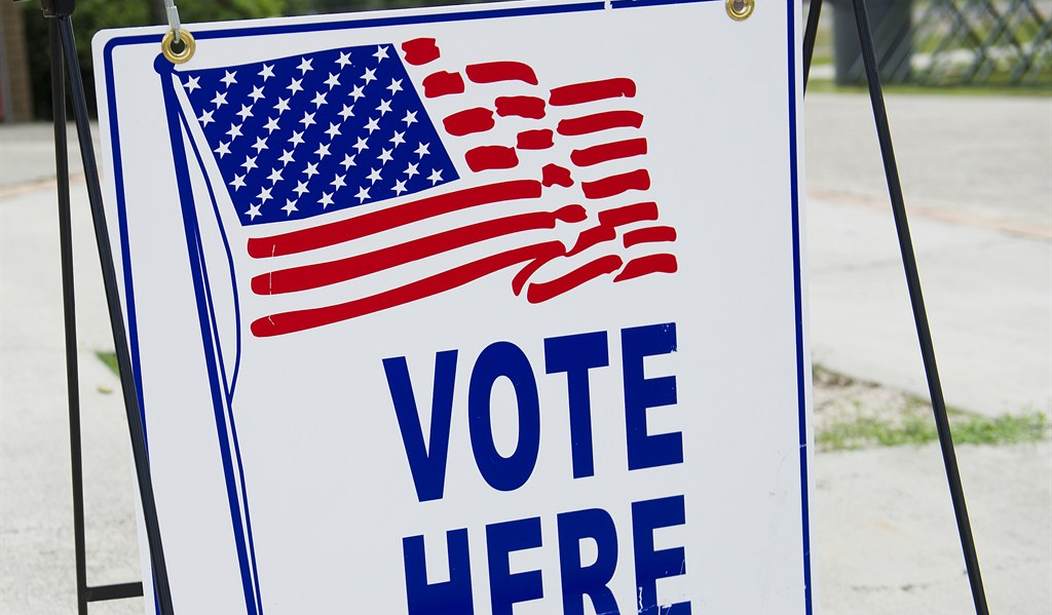Data shows that winds of political change are blowing among Black voters.
In volatile times like now, predictions can be made with only the greatest caution.
However, it seems clear that something is going on and Black voters are breaking with past voting patterns.
The New York Times reported last November that, per its polling with Siena College, 22% of Black voters in six key battleground states -- Arizona, Georgia, Michigan, Nevada, Pennsylvania and Wisconsin -- indicated they would support Republican Donald Trump.
In 2020, Trump gained ground with Blacks, picking up 12% of the Black vote, up from 8% in 2016. But any suggestion that any Republican candidate might pick up 20-plus percent of the Black vote is revolutionary.
The last time the Black vote went beyond the teens for a Republican was in 1960, when Richard Nixon got 32% of the Black vote, in a close election he lost to John Kennedy.
The next election in 1964 was, for Blacks, about the Civil Rights Movement. The Republican candidate, Barry Goldwater, opposed passage of the Civil Rights Act and got 4% of the Black vote. Republicans have not recovered since.
Nixon returned and won the presidency in 1968 and 1972. However, Blacks supported him at a fraction of what he received in 1960 -- Nixon getting 10% of the Black vote in 1968 and 13% in 1972.
In a USA Today/Suffolk University Poll reported in January, only 63% of Black voters indicated support for President Joe Biden, compared to 87% who voted for him in 2020.
The USA Today/Suffolk University poll shows a less compelling picture of Blacks moving toward Trump. That poll shows 12% support for Trump, exactly where he was in 2020.
Recommended
However, the poll shows Black sentiment moving away from Democrats with almost 20% of Black voters indicating they would support a third party candidate.
Now we have new data from Gallup reporting that "The Democratic Party's wide lead over Republicans in Black Americans' party preferences has shrunk by nearly 20 points over the past three years."
Among Black Americans surveyed, 66% said they identify as Democrat/lean Democrat and 19% Republican/lean Republican, for a differential of 47 points.
A little over three years ago in 2020, in the same survey, 77% of Black Americans identified as Democrat/lean Democrat, compared to 11% identifying as Republican/lean Republican, for a differential of 66 points. In just three years, the differential between Black support for Democrats and for Republicans has shrunk 19 points.
Overall, the 47-point differential in this latest survey is the smallest since Gallup first started doing the survey in 1999, when the differential was 72 points.
With recent elections decided by tiny margins in battleground states, a fundamental change in voting behavior by one key demographic -- Blacks -- can be a game changer.
The implications over the long haul are profound given the demographic changes taking place, with the percentage of the white vote, which accounts for the majority of Republican votes, shrinking in each election. In 2020, whites accounted for 67% of the vote. This compared to 1980 when the white vote stood at 88%.
Per the Census Bureau, the percentage of the U.S. population that is white will be down to 45% by 2060. So, any movement of Blacks, and Hispanics, away from Democrats means a lot.
Why is this apparent movement of Blacks from Democrats happening?
Here's one hypothesis I propose from the New York Times/Siena College Poll.
That poll shows that, relative to whites, Blacks care more about economic issues than social issues. Sixty-five percent of Blacks say economic issues are most important compared to 53% of whites. Twenty-one percent of Blacks say social issues are most important compared to 33% of whites.
Perhaps we are entering new times when fewer Blacks look to government for social justice and more want economic growth and opportunity.
This means Republicans.

























Join the conversation as a VIP Member